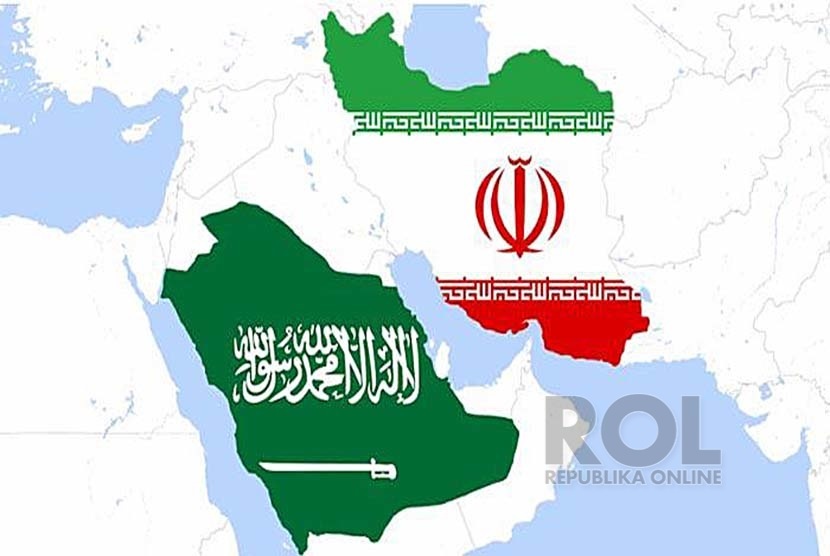In the past few weeks of May 2023, Indonesian netizens were stirred by the "ticket war" for the concert of the famous band from London, England, Coldplay. This band, established in 1997, received an overwhelming response from the Indonesian youth. The concert tickets provided by the promoter sold out quickly, even though the concert was scheduled to take place six months later on November 15, 2023, at the Gelora Bung Karno Main Stadium (GBK) in Jakarta.
The frenzy surrounding the Coldplay concert is understandable. Besides being their first-ever tour in Indonesia, Coldplay is also one of the limestone rock bands that have sold 100 million albums. However, the euphoria surrounding this spectacular music concert suddenly vanished when there was opposition from several religious groups in Indonesia.
The rejection came from the Alumni Brotherhood (PA) 212 group. The issue they raised was the claim that the band was closely associated with LGBT and atheism. Furthermore, the PA 212 group threatened to besiege the airport if the concert proceeded. Shortly afterward, the Indonesian Ulema Council (MUI) followed suit. The question is, on what basis did they reject the concert? Are there any valid proofs that the band is involved with LGBT or atheism, for example?
Islamism and the politicization of religion have been prominent since the 2014 Presidential Election. In the realm of digital public discourse, there has been a significant increase in the battle of ideas. Campaigns that were previously conventional have shifted to the digital sphere. Both the Jokowi-JK and Prabowo-Hatta camps engaged in black campaigns, utilizing identity politics with elements of religion, ethnicity, race, and intergroup conflicts, as well as structured and massive hoaxes and hate speech. Each camp used religious symbols to seek sympathy, legitimacy, and delegitimization of their political opponents. It was from that context that terms like "cebong" (Jokowi supporters) and "kampret" (Prabowo supporters) emerged, along with the terms "BuzzerRp" and "kadrun" as variations of political epithets.
Based on the records from the DroneEmprit website on July 17, 2022, the fluctuation in the usage of these terms in tweets on Twitter from July 1, 2015, to April 16, 2022, can be observed. The first term that emerged was "cebong," followed by "kampret," "kadrun," "buzzer," and "buzzerRp." The peak usage of "cebong" and "kampret" occurred in April 2019 during the 2019 Presidential Election. After the 2019 election, the usage of these two terms drastically decreased. However, a new term emerged at the end of 2019, namely "kadrun," followed by "buzzer" and its variations, such as "buzzerRp."
Before the 2019 Presidential Election, the public was captivated by the "blasphemy" case that befell Jakarta's Governor, Basuki Tjahaja Purnama (Ahok). He was entangled in a video of his speech during a working visit to the Thousand Islands on September 27, 2016, which was edited and framed with the narrative of "blasphemy against Surah Al-Maidah verse 51." In reality, Ahok's speech, which lasted for 40 minutes, was about "not being deceived by politicians who misuse Surah Al-Maidah verse 51 to undermine their non-Muslim political opponents."
However, because the edited video went
viral with a narrative that touched on sensitive religious and ethnic issues, it sparked the 411 and 212 Actions in 2016, demanding Ahok's imprisonment for allegedly insulting Islam. The movement, led by the Islamic Defenders Front (FPI), succeeded in imprisoning Ahok with a two-year sentence in May 2017. As the incumbent candidate, Ahok lost in the 2017 Jakarta Gubernatorial Election due to the use of religious and identity-based issues.
It seems that our society has entered the era of "post-truth." People prioritize assumptions, emotions, and suspicions over logic and facts. This phenomenon is similar to Baudrillard's description that we are in an era of abundant information but lacking deep meaning.
In this context, the PA 212 group and MUI emerged and continue to grow. While their political interests may not be as intense as during the 2017 Jakarta Gubernatorial Election, the massive politicization of religion at that time left lingering identity sentiments. Islamism is strengthening, and the digital public sphere is experiencing what philosopher Habermas calls "refeudalization," which refers to the influence of power desires on the public sphere.
The rejection of the grand Coldplay concert is just a small example of how Islamism is gaining strength in Indonesia. The issues of LGBT or atheism are not new. It is reminiscent of the Communist Party of Indonesia (PKI) issue that always heats up, especially in September each year, particularly in the political context. However, the crucial point is not that. As the 2024 political year approaches, with several political parties having already announced their presidential candidates, where is Indonesian politics headed? Will it be similar to previous presidential elections that tore democracy apart with religious and identity issues, or will it be more civilized and clear in its direction?
The threats from the PA 212 group and MUI can serve as signals to answer these questions. Although the current political temperature may not be as high as in 2019 or 2014, it does not mean that the nuances will be significantly different if the same political actors are involved. This is in line with LP3ES's report on the danger of the political oligarchy circle in Indonesia.
In the discussion on "Political Dynamics toward 2024: What Does Big Data Say?" held on February 5, 2023, LP3ES in collaboration with Continuum stated that Indonesia is facing a dangerous situation in the future. This is due to the presence of three political power axes: the state or the oligarchy that has united with political parties, and a fragmented society. Therefore, concrete steps are needed to prevent Indonesian democracy from falling into a precipice.
The massive politicization of religion has left lingering identity sentiments. Islamism is strengthening, and the digital public sphere is experiencing what philosopher Habermas referred to as "refeudalization," which involves the influence of power desires on the public sphere.
Regarding evidence of Coldplay's association with LGBT, there is no concrete data to be disclosed, except that in some stage performances, Coldplay's vocalist, Chris Martin, often carries rainbow flags. However, their song lyrics do not support the LGBT or atheism community.
As renowned artists and musicians, this band may feel entitled to speak up and advocate for the rights of minorities. It should be noted that what they defend is human rights, not sexual orientation or other matters. There is no clear clarification from them regarding their support for LGBT activities.
Furthermore, the band also has an online record of supporting Palestinian independence and "condemning" Israel. However, the basis for their stance is not solely rooted in religion but rather in humanitarian concerns and the right to self-determination. []




















